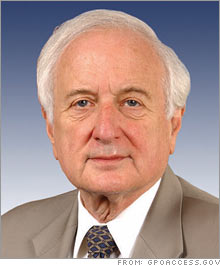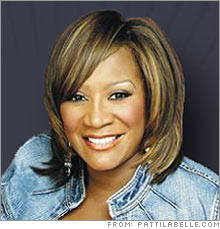Busting a few Blackstone tax mythsSorry, folks, Blackstone isn't gaming the tax system, says Fortune's Allan Sloan.(Fortune Magazine) -- One of the problems with trying to have a rational discussion about taxes is that so many people want to believe what's convenient rather than what's accurate. Believing, after all, requires so much less effort than thinking. Consider, if you will, the current debate about how to tax income earned by the people who run leveraged-buyout houses, hedge funds, and venture capital shops. It was the subject of high-profile congressional hearings in September, and the lobbying on both sides is intense.
Fans of the current system believe that the legislation to tax buyout kings the same way mere mortals are taxed is based on envy of the lifestyle of Blackstone Group CEO Steve Schwarzman (best known to the masses for his $3 million birthday party) and on Blackstone's decision to raise billions from the investing public. On the other side, many people believe that Blackstone and its fellow buyout firms (which call themselves "private equity" houses) invented a dodgy tax game to get the managers' piece of their investors' profits taxed at the 15% capital gains rate rather than at the top 35% rate for "earned income," such as salaries and fees. Both of those beliefs are, in fact, wrong. Sure, as they say in Public Relations 101, it's the whale that comes to the surface that gets harpooned and the House legislation to raise the personal tax rates of Schwarzman et al. was introduced on June 22, the day after Blackstone's public offering was completed. I'm dealing with the House bill rather than the Senate's higher-profile proposals because the Senate's bill was designed to increase taxes on publicly traded investment partnerships like Blackstone Group LP (Charts) but wasn't aimed at raising the personal tax rates on the firm's partners, which is a far bigger deal on Wall Street. Private equity's supporters in this fight say it is happening because envious politicians, annoyed that Schwarzman would rather write checks to Martin Short and Patti LaBelle (both of whom performed at his party) than to the IRS, devised this legislation as a revenge move. It's a great story. Just turns out it isn't true. "I'd never heard of Blackstone before I started working on that legislation" this spring, says the man who introduced the House bill: Representative Sander Levin, (D-Michigan). He also says, "I'd never heard of carried interest," which is the term for the managers' piece of their investors' profits, typically 20%. So what inspired Levin, a senior member of the House Ways and Means Committee? His Harvard Law School classmate (class of '57) and close friend, retired tax lawyer Stephen Wolfberg. This past spring the Levins and Wolfbergs, who both have homes on Martha's Vineyard, met for dinner at a French restaurant in Vineyard Haven (so much for the class-envy arguments). "I happened to mention to him that people who were making a disproportionate amount of money were paying tax at the capital gains rate, which seemed particularly egregious," Wolfberg told me, adding, "It was just a passing remark." But it resonated with Levin, who represents a suburban Detroit district filled with salaried workers who pay full tax freight on their income (and who, for that matter, don't know how much longer they'll have salaries, given the state of southeastern Michigan's economy). "Tax fairness matters to my district," Levin said. After he got back to Washington, Levin asked his staff to prepare legislation to treat managers' share of their investors' profits as fee income (which I certainly think it is) rather than as investment income, which almost all buyout, hedge fund, and venture capital players insist publicly it is. (For a rare exception, see Leo Hindery's Q&A) Now, to Myth No. 2 - that the buyout boys invented a loophole that lets them treat their carried interest as capital gains rather than a fee. But that's not so. Under long-standing partnership law - ask your local tax techie about "disproportionate allocation" - carried interest has always gotten the same tax treatment that investors in the partnership get. If the investors get long-term gains, the manager does too. If the gains are short term - say, from a hedge fund that does lots of quick trades - the carried interest is treated as short-term gains, taxed at a maximum 35% rate. Even if Levin's legislation is adopted by Congress, it still has to get by President Bush, who seems likely to veto it. That's unfortunate, I think - not for bleeding-heart reasons but for basic fairness. If you manage an investment pool for a mutual fund or Goldman Sachs (Charts, Fortune 500), your incentive pay is fully taxable salary income. Why should managing an LBO fund be different? The Private Equity Council, a Washington-based group composed of Blackstone and ten other big firms, argues that raising taxes on the managers' carried interest would have the same harmful impact on the economy as raising taxes on investment income. With all due respect, raising managers' taxes doesn't strike me as being remotely similar to raising their investors' taxes. I just don't get it. And trust me - if these players get to keep only 65% of their millions (or billions) of carry income instead of 85%, Martin Short still won't lack for gigs. Research Associate Lisa Bergtraum contributed to this article. |
|


